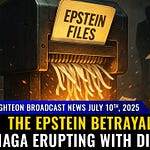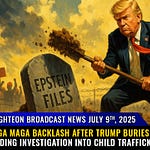In a bold move to combat what he describes as "government collusion with Big Tech," President Donald Trump has signed an executive order aimed at safeguarding free speech and curbing the suppression of Americans' voices online. The order, issued on his first day back in office, specifically targets federal agencies' collaboration with tech platforms to censor speech under the guise of combating "misinformation, disinformation, and malinformation." This action marks a significant step in Trump's broader push to restore constitutional rights and hold tech giants accountable for what he calls "viewpoint discrimination."
The executive order comes after years of escalating tensions between conservative voices and major tech companies, which have been accused of disproportionately silencing right-leaning perspectives. Trump's order asserts that the federal government has "infringed on the constitutionally protected speech rights of American citizens" by advancing its preferred narratives on significant public debates. "Government censorship of speech is intolerable in a free society," Trump declared in the document.
Free speech advocates have hailed the move as a long-overdue correction to what they see as an overreach by both tech companies and government agencies. "This is a great start," said Mike Adams, founder of Brighteon.com, a free speech video platform. Adams, who has been censored and de-platformed multiple times over the past decade, praised Trump for taking action but emphasized that more needs to be done. "The government must also prohibit large tech platforms from engaging in viewpoint discrimination," he added.
However, the order is expected to face fierce legal challenges from tech companies and critics who argue that it could undermine efforts to combat harmful content online. Critics warn that limiting the ability of platforms to moderate content could lead to the proliferation of dangerous misinformation, particularly in areas like public health and elections.
The executive order is part of a broader agenda Trump has outlined to restore what he calls "America First" policies. On his first day in office, he also declared a national emergency at the southern border, allowing Texas and other states to deploy additional law enforcement resources. Additionally, he signed orders to reassert traditional values in federal institutions, including rejecting the concept of multiple genders and banning biological males from competing in women's sports.
Trump's actions have been met with both celebration and skepticism. Supporters view them as a necessary correction to what they see as years of overreach by the previous administration, while opponents argue that they risk further polarizing an already divided nation. The pardoning of 1,500 individuals involved in the January 6th Capitol protests, whom Trump referred to as "hostages," has also sparked intense debate. Critics see the pardons as a dangerous endorsement of political violence, while supporters view them as a necessary step to rectify what they believe were unjust prosecutions.
The executive order on tech censorship is particularly significant in the context of ongoing lawsuits against major platforms like Google, Meta, and X (formerly Twitter). Adams, who is involved in one such lawsuit, believes Trump's order could bolster his case. "Every day that lawsuit gets better because somebody comes out and admits something, like Zuckerberg admitting to censorship, or Trump saying the government has been engaged in censorship," he said.
As the legal battles unfold, the broader implications of Trump's executive order remain to be seen. Will it lead to a more open and equitable digital public square, or will it create new challenges in the fight against harmful content? One thing is certain: the debate over free speech, censorship, and the role of Big Tech in American society is far from over.
For now, Trump's supporters are celebrating what they see as a decisive victory for free speech. "Trump kept his word," Adams said. "He's doing exactly what he promised to do, and if this is a taste of things to come, I can't wait." Whether this marks the beginning of a new era of accountability for tech giants or the start of a protracted legal battle, one thing is clear: the fight for free speech in the digital age has entered a new and contentious chapter.
For more updates, visit NaturalNews.com












Share this post